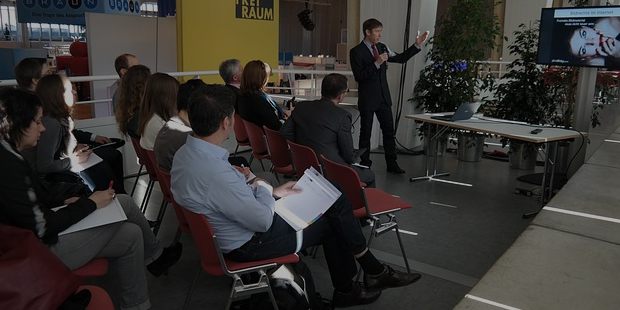Master The Art of Effective Listening

I’m not sure about you, but how I love to be described as a good listener. Being a good listener reflects your good interpersonal skills since it shows how well you can handle conversation at the same time, how effective you build harmony with people. Being a good listener translates your being a good friend. Isn’t amazing if one calls you good friend
Why not Try The Other Side, Right?
Unfortunately, I’m the one who always do the talking. I’m not saying that talking is bad, no! But since I’m done in mastering this act, Here is what I find that can help you - me - in perfecting the art of listening.
1. Determine the Purpose of Interaction

Positive Thoughts on Daily Activities
We have different goals why we communicate and interact. It is either to get to know someone, to share information and ideas, or to simply pass time and bond. Knowing the purpose of interaction ensures its good start.
This tip is so relevant for me since it keeps me on track of what is being said. Sometimes we get lost on the topic of conversation,that at the end we don’t understand each other.As you listen, you have to recognize the root of the conversation, so that you have proper grounding and will not get lost as you go along with listening.
2. Look for the right details

Proper listening entails getting the necessary information. In our world full of noise, that’s a tough job that’s why we have this to remind us. It doesn’t that you can disregard other words expressed, but to pay attention requires you to find the relevant facts in the moment you are in. In relation to the first tip, you will be able to get the right details when you know why you’re interacting.
3. Listen also to what the body says

You also need to be observant with what the speaker’s body says. Action speaks louder than words, literally and figuratively true. Through the body, you can identify the emotions behind the words. Is he/she in discomfort? Does the thing he/she’s uttering makes him/her happy or sad? Is he/she bored?
Nonverbal communication reinforces or contradicts what is being told. Since it is unconscious, body expresses the real thing here. You must see also the message of the body, to point out the correct details and understand the speaker more.
Comprehension
What distinguishes listening from hearing is its comprehension component. You figure out what you hear. You just don’t simply pick up the words, you have to understand them, which will be automatic for us if we are interested.These practice aid us how to properly process what we hear as we effectively listen.
4. Keep an open mind

Open-mindedness can go a long way. To have an open mind means you can take all whatever it takes. True listening is being open-minded for new ideas and stories.As you listen, you should not have judgements. Don’t jump into conclusions. How can you see the meaning in the speaker’s perspective if you will keep entertaining your own thoughts?
Who doesn’t trust someone who will not judge you? Think, if you are the speaker, will you choose someone who will argue with you or the one who will let you talk without bias?
5. Time your clarifications or questions

Wait for the speaker to pause before you ask. Never try to interrupt your speaker just to clear things up in your head. Aside from being rude, it can disrupt the momentum of the speaker and he/she might lose the trail of his/her thoughts.
In the speaker’s point of view,this really annoys me when my partner says “Wait, do you mean ?” then “Continue.” After that, I’ll be
“Where was I?”
Also, your clarifications and questions are to help you to understand not to introduce your own version of story. Remember that the point of what you’re doing is to get what the speaker wants to share, not the other way around.
6. Put yourself in the speaker’s shoes

Imagine. Digest. Allow your mind to picture what is being told. Let your brain do the work. As long as you stay focus, your brain will automatically process the ideas.
Feel. Experience. Permits your emotions to emerge. Let your heart do its work. Empathy is the core of listening, and if you can feel what the speaker is feeling then you’re doing the right job.
7. Let the flow of thoughts without overthinking

Since our mind processes information 24/7, you don’t have to worry about it, however, don’t focus on your thoughts too much. Don’t let your mind wander. Don’t concentrate on what your mind is thinking, or else, you will disturb your listening.
Response
Effective listening is also active listening. It is also two-way. You also have to respond. What unique thing about listening is your response should be all throughout.
Through your responses, your speaker will be assured of your continuous interest on the interaction. The following steps are how you should respond when you actively listen.
8. Maintain the eye contact

Eye contact is basic but commonly forgotten. I’m always doing something and when others need my ears, I always say that they can speak and I can listen while working. But the truth is, sometimes I can’t follow what they are saying, and I just ask them to repeat over and over again.
Eye contact guarantees your concentration on the speaker. It also maintains the connection between the two of you. On the other note, it should not be a staring competition. Just make sure that you meet the speaker’s eyes from time to time.
9. Observe your posture as well

The speaker has to know your presence through your posture. When the speaker gets carried away, you still need to hold on your attention.Have the right distance from the speaker, make sure you’re leaning toward him/her but try to be relaxed.
10. Nods and Ahhs

When I talk to someone, time flies away. Consequently, I get conscious when I talk for a long time. Is my partner still interested? Is he/she still listening? I always depend on the nods and ahh’s my partner gives, to continue or not.
Show the speaker that you understand by your nods, yes’s, okay’s when it’s needed. “Mhhmmm,” “ahh,” are big deals.It’s so important that the speaker can see your understanding so that he/she stays comfortable and open in speaking.
11. Speak Now or Remain Silent

It is also not bad to provide short feedback mirroring the speaker’s feelings. “How exciting for you!” “That’s so terrible.” That are some examples of reaction you can deliver.
There will be moments in the conversation that the speaker will hesitate to continue and just pause, to look for words of encouragement, you have to be able to provide feedback to urge him/her to resume.
12. Be Natural

In everything you do, you have to be natural. Don’t fake anything. Don’t force your reaction towards the speaker, it will just compromise the point of the whole thing. Be mindful of the tension building in your body. Ease that part where you feel tension. Be natural and genuinely listen.
What’s the purpose of being a good listener if you really don’t want to listen. Anyone can claim that he/she is a good listener. It’s a matter of sincerity. If you’re not interested to listen, don’t act and let the speaker believe that you’re into the moment.
13. Confirm what you heard

Lastly, you should confirm what you heard at the end, so that you can be sure of your own interpretation. When you validate what someone said, you not only give yourself to confirm your understanding but you also give the speaker chance to clarify or correct what he/she said.
You don’t need to agree or disagree to the speaker, the point of effective listening is to understand the viewpoint of the speaker. In this final step, you certify your understanding. (Change in Your Life)
In my previous post, I discussed how vital listening is in communication. We often mistake that listening is just a passive way of interaction. That it is a small thing that we commonly neglected. But in our current generation, where we love to disagree once the first word is spoken, listening is key important in bridging gaps and preventing conflicts. (Most Successful People)
To have effective listening skills establishes the success or failure of the interaction. Moreover, effective listening skills is a great asset in business, sales, customer service and other professions. In fact, effective listening is being taught in formal setting.These steps are just basic for you to improve your effective listening skills. In end, you need to develop your own style and master it by your own.









